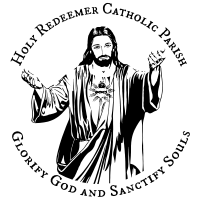The Eucharist, Part 15
Jesus Christ: Yesterday, Today, and Forever ~
Today we continue our twenty part series on the Eucharist. In case you missed the first three, you can find them here. This is in keeping with Archbishop Etienne’s pastoral letter on the Eucharist that you can find here (in case you missed it). Enjoy.
May God Bless You,
Fr. Thomas Nathe
Trent Horn, 20 Answers – The Eucharist. Catholic Answers Press. 2015
Get your own copy from Catholic.com
Question #15:
Can non-Catholics receive the Eucharist?
A person must normally be baptized or received into the Catholic Faith in order to receive the Eucharist and even then that person must be free from mortal sin or canonical penalties such as excommunication. For example, the Didache admonished first-century Christians to “let no one eat or drink of your Eucharist, unless they have been baptized into the name of the Lord; for concerning this also the Lord has said, ‘Give not that which it holy to the dogs.’”
Keep in mind that this rule is not carried out because of a sense of spiritual superiority or because the Church wants non-Catholics to feel bad. Instead, it is done out of a sense of concern for non-Catholics who might want approach the sacrament.
The Catholic Church teaches that the Eucharist truly is the body and blood of Christ. When the communicant says “amen” upon receiving the Eucharist, he is saying that he believes not only in this tenet of the Faith, but also in all that the Catholic Church teaches. If he does not believe these things, then his consent to receiving the sacrament cannot be valid. Of course, if he desires the Eucharist then he can always be received into the Catholic Church so that his communion with the Church will be as complete as his communion with Christ in the Eucharist.
A non -Catholic may receive the Eucharist only if he or she is a member of a church that holds the same view of the Eucharist as the Catholic Church. This is the case, for example, with Eastern Orthodox churches, whose bishops and priests retain valid apostolic authority but are in schism since they do not recognize the primacy and infallibility of Peter’s successor in the bishop of Rome, the pope. It is licit to administer the sacraments of penance, anointing of the sick, and Eucharist to members of these churches, “if they seek such on their own accord and are properly disposed. This is also valid for members of other Churches which in the judgment of the Apostolic See are in the same condition in regard to the sacraments as these Eastern Churches.”
This may also be done for other Christians, such as a Protestant who wishes to convert to the Catholic faith (and thus believes in the Real Presence) but is in danger of dying. The Code of Canon Law states, “If the danger of death is present or if, in the judgment of the diocesan bishop or conference of bishops, some other grave necessity urges it, Catholic ministers administer these same sacraments [penance, Eucharist, and anointing of the sick] licitly also to other Christians not having full communion with the Catholic Church, who cannot approach a minister of their own community and who seek such on their own accord, provided that they manifest Catholic faith in respect to these sacraments and are properly disposed.”
The Church also teaches that under limited circumstances Catholics can receive the Eucharist in non-Catholic churches that have valid sacraments (e.g., Eastern Orthodox or Assyrian Church of the East, for example). This may be the case if someone is in a foreign country that lacks a Catholic presence and so is unable to attend Mass. The Code of Canon Law states that “whenever necessity requires or a genuine spiritual advantage commends it, and provided the danger of error or indifferentism is avoided, Christ’s faithful for whom it is physically or morally impossible to approach a Catholic minister, may lawfully receive the sacraments of penance, the Eucharist, and anointing of the sick from non-Catholic ministers in whose Churches these sacraments are valid.”

